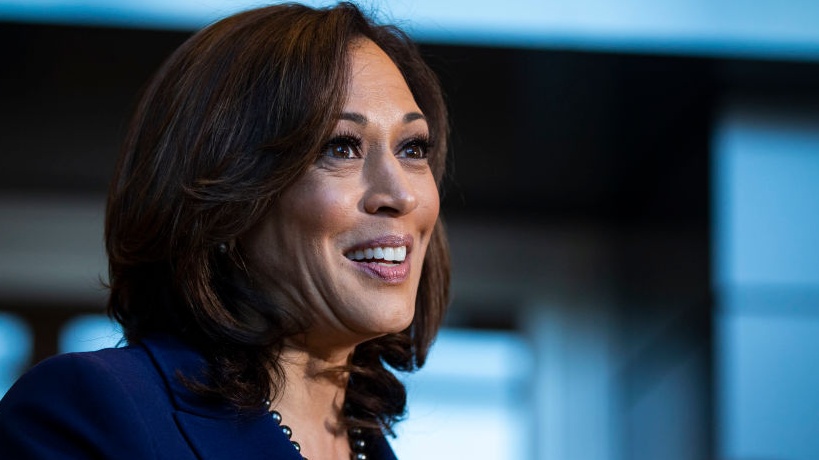Democratic candidate for vice president Kamala Harris has hit the campaign trail hard in recent days, jetting around the country to speak with constituents in swing states.
On Thursday, during a roundtable discussion at historically Black college Florida Memorial University, Harris said that if presidential candidate Joe Biden makes it to the White House, they will invest $70 billion in historically Black colleges and universities, according to Market Watch.
She also spoke passionately about the student loan debt problem facing millions of young Americans and pledged to forgive the loans of people who work in jobs that pay them less than $125,000 as well as students whose families' income is below that threshold.
Today, the student debt crisis reached $1,754,978,792,068
— StudentDebtCrisis (@DebtCrisisOrg) September 11, 2020
“In relation to the history of HBCUs, [students] decide to take on a profession of service, which often does not pay as well as if they go into the private sector and do other things. So for those students who come out and have jobs that pay less than $125,000, student-loan debt will also be forgiven,” Harris said.
Additionally, Harris added that two-year college programs should be free for all low-income Americans, especially those attending HBCUs.
“We want to support our young people for whatever they pursue by way of education after high school. For some that will be a college and university, for some it will be a two-year program, or an apprenticeship, or something of that nature, and we want to make sure that we support them in that quest,” she said.
Harris was speaking with Jaffus Hardrick, president of Florida Memorial University, who said HBCUs like his are working on minuscule budgets that have been hampered by the coronavirus pandemic.
Student loan debt was a key issue raised during the Democratic presidential primary earlier this year and a number of candidates, including Harris, vowed to make some version of community college free.
Harris herself went to an HBCU and is an alumna of Howard University, becoming the first vice presidential candidate of either party to attend a historically Black college.
The COVID-19 pandemic has hit HBCUs harder than most schools considering most were already facing budget shortages and complications related to funding.
According to Yahoo, about 10% of HBCUs are on a “heightened cash monitoring” watchlist organized by the Department of Education.
The list includes schools that are having financial issues or considered at risk of closure due to concerns about problematic financial statements and "outstanding liabilities."
"Schools may be placed on [heightened cash monitoring] as a result of compliance issues including but not limited to accreditation issues, late or missing annual financial statements and/or audits, outstanding liabilities, denial of re-certifications, concern around the school's administrative capabilities, concern around a schools' financial responsibility, and possibly severe findings uncovered during a program review," the federal student aid department says on its website.
The funding shortages have prompted wealthy Americans to donate millions to schools in the hopes of making up budget shortfalls. But the donations, while welcomed, do little to address the underlying issues facing many HBCUs, namely that millions of students cannot afford to attend college without taking out onerous student loans.
Yahoo noted that in 2019, the endowment for all of the more than 100 HBCUs amounted to $2.1 billion, according to Inside HigherEd. That number pales in comparison to the endowment for Harvard University alone, which has an endowment of nearly $36 billion.
More than 50 predominately white universities have endowments that are bigger than the total endowment of every HBCU in the country combined.
Even within that $2.1 billion figure, there are wide disparities. Howard University, Morehouse and Spelman College receive the bulk of funding while dozens of others get barely anything.

